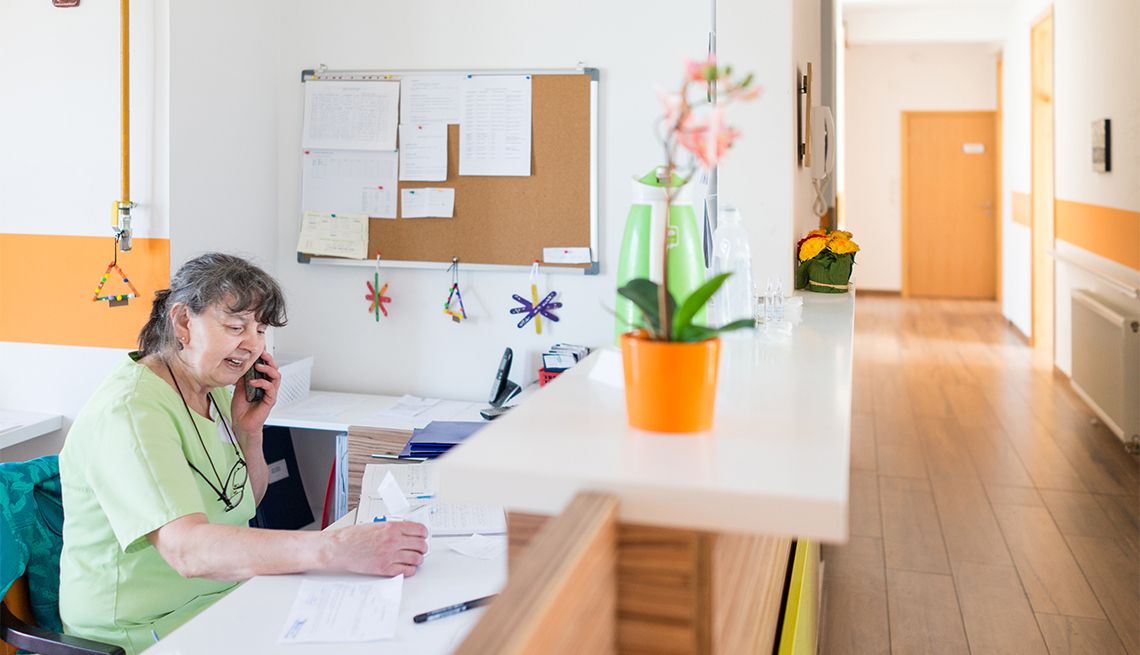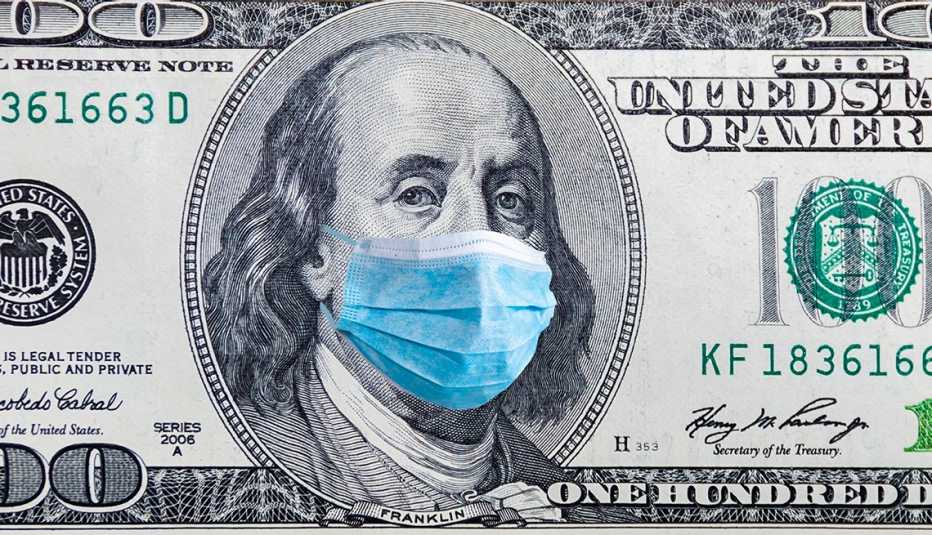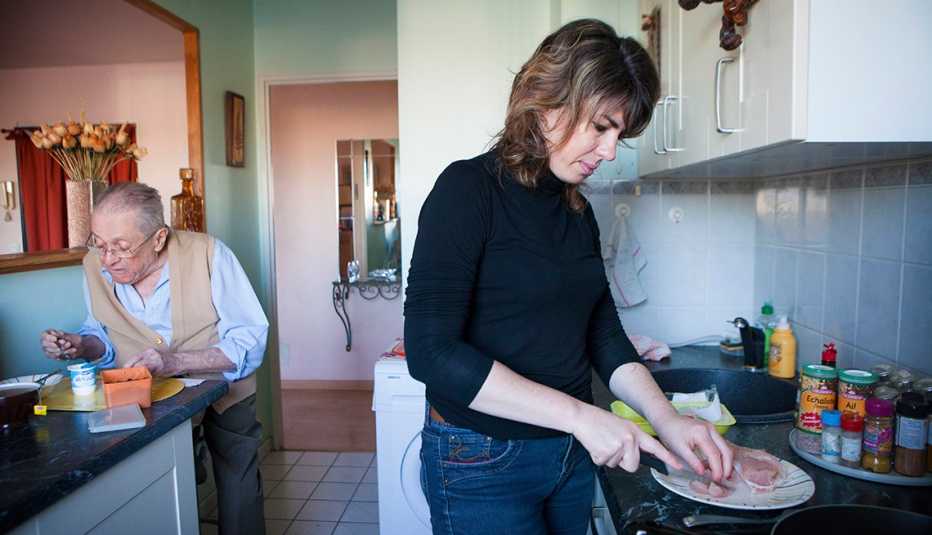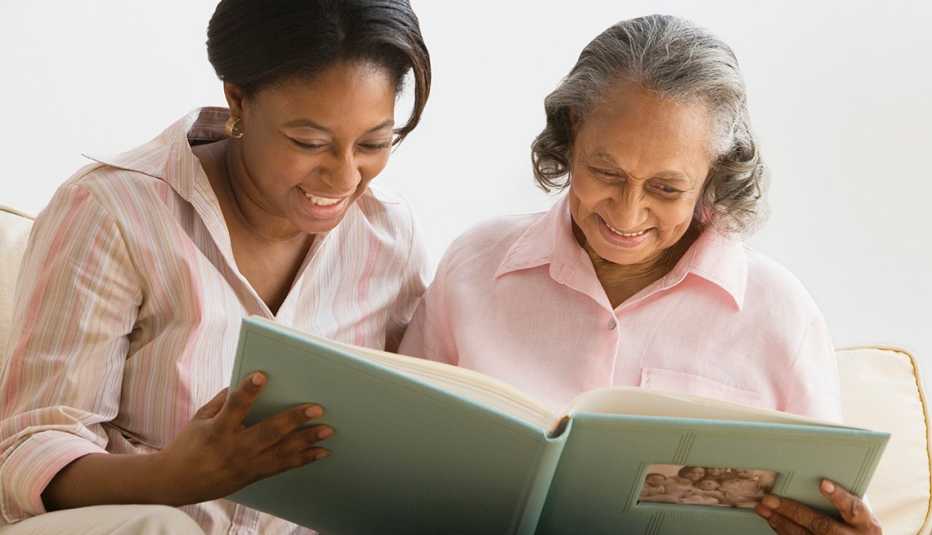Staying Fit

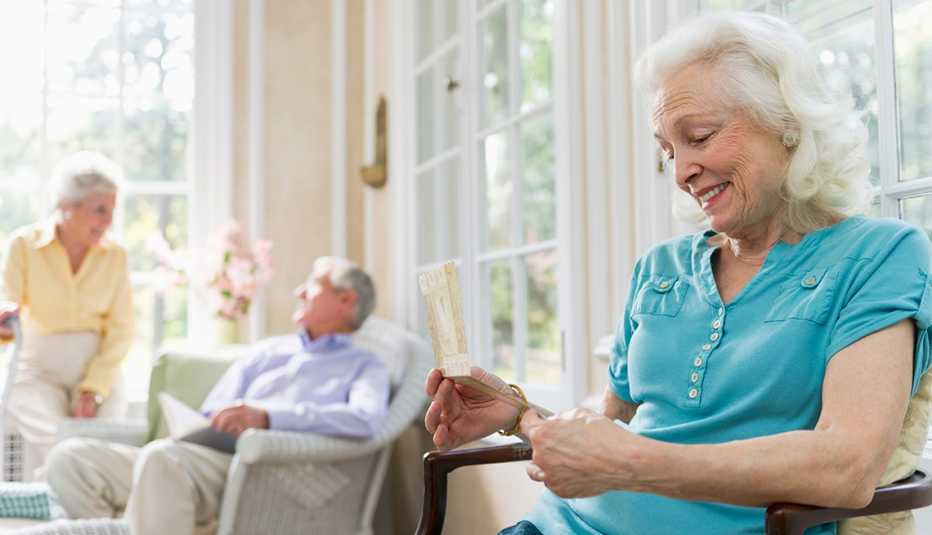
Other advice for family caregivers when a loved one is quarantined:
• Make sure the facilities can contact you easily: Give them the most up to date emergency contact information, so you're sure to get all updates about your loved one or the facility at large.
• Consider letter writing as a means of communication. “The advantage to cards and letters and notes is it's something that, even when they have a lonely moment, they can open up the letter and card and read it again,” Yeh says. If you can't come in person because you're far away, says Mollot, then “maybe fax a note, even one page saying ‘we love you’ — something like that could make a difference."
• Choose one member of family to be the liaison with the facility, Yeh says, “so you don't have multiple people from one family calling the same facility.” And you should know who the appropriate contact is at the facility — a specific person you can communicate with regularly. Usually each nursing home resident is assigned a social worker, Sganga says, or “most families have a relationship with the nursing staff on the unit."
• Find a good way for your family members as a group to stay on top of your loved one's life inside, Yeh suggests. Set up a Facebook group or group email so the liaison can keep everyone posted.
• Don't let your anxiety get out of control. “Take a deep breath,” Yeh says. “The good news is, at least your loved one is in a facility that has a number of mandates and expectations to protect them. It's a serious situation. But, it's not worth panicking over."
• Remember to care for yourself. Practice your own personal, healthy lifestyle and habits, and you'll be less vulnerable to getting sick yourself — and better able to care for someone else. Says Yeh: “I think sometimes we get so caught up, we forget that.
It can be frustrating and nerve-racking when you can't see a loved one face-to-face — a fact that so many family members with loved ones in assisted living or nursing home facilities are discovering during the coronavirus outbreak. To protect those who are most at risk of complications from the disease caused by the coronavirus, COVID-19, health officials have announced strict rules for some facilities with vulnerable older residents.
The guidance for nursing homes, which are regulated by the federal government, is that members of the public and nonessential health care personnel and staff should not be allowed to visit (with a few exceptions, such as an end-of-life situation — as long as the visitor isn't showing signs of a respiratory illness), according to guidelines from the Centers for Medicare & Medicaid Services.


AARP Membership— $12 for your first year when you sign up for Automatic Renewal
Get instant access to members-only products and hundreds of discounts, a free second membership, and a subscription to AARP the Magazine.
Learn more about the steps AARP is urging Congress to take in the coronavirus pandemic.
Assisted living communities are a different situation; they're governed by the states. There have been no sweeping rules covering their management during the outbreak, but the American Health Care Association/National Center for Assisted Living, the industry trade group, is asking its facilities to follow the federal government's guidance for nursing homes. That means “restrict[ing] all non-essential individuals from visiting your facility for the time being” and screening anyone who needs to enter the building for signs of COVID-19.
To allay anxiety, many of these residences are going to great lengths to communicate with family members, including through email, phone calls and websites, detailing their policies and instructions for connecting with residents, and posting photos of residents’ daily activities.
"A lack of communication at a time like this is the last thing that you want to do,” says Chris Corrigall, vice president of life enrichment at Aegis Living, which owns and operates 32 assisted living and memory care communities. Because most are in California and Washington, where the outbreak has been especially widespread, all residents are being voluntarily quarantined in their apartments, with food delivered to their doors. Corrigall says, “To help reduce the fear and anxiety and all of the questions that are coming from the families, we are communicating with them every day.”
But many family members are still concerned about how their loved ones are doing when they can't confirm their well-being in person. If you have questions about their care, you need to be assertive, says Richard J. Mollot, executive director of the Long Term Care Community Coalition in New York City, a nonprofit advocacy organization created to improve the quality of care in facilities such as nursing homes and assisted living communities: “We've been telling people to be firm, polite and persistent.”
Some questions you might ask if your loved one is in a quarantined facility:



























































